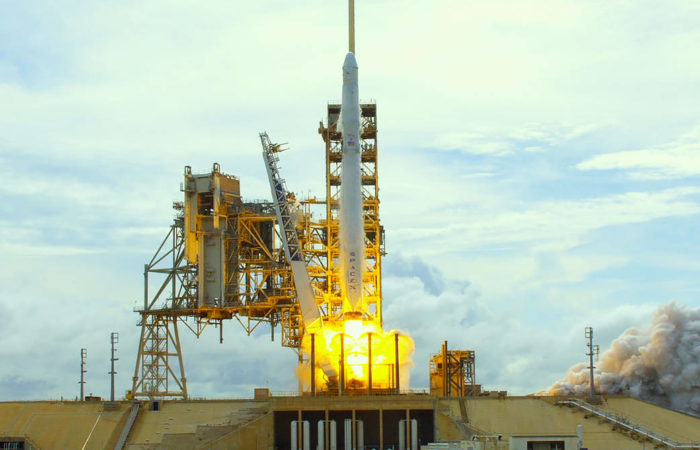Houston TX – June 5, 2017 – After Saturday’s launch to the International Space Station (ISS), SpaceX’s Dragon was successfully berthed and installed, bringing over 25 of NanoRacks’ customer payloads to the ISS, including the first-ever Chinese experiment to be brought aboard Station.
The launch of the Chinese experiment from the Beijing Institute of Technology (BIT), led by Professor Deng Yulin, has been in work for over two years now. Following complete U.S. government compliance, this fully commercial, educational Chinese experiment will study the effects of the space radiation environment on DNA and the changes in mutation rate. The experiment will run on Station for about 30 days and then return back to Earth aboard the Dragon spacecraft.
The BIT NanoLab will remain confined to the NanoRacks platform on Station, and can in no way interface with the International Space Station or NASA’s IT infrastructure and systems. There is no transfer of technology between NASA and China.
“Our mission at NanoRacks is to democratize access to space,” says NanoRacks CEO Jeffrey Manber. “Professor Yulin and his team have been conducting innovative DNA research for years, regularly publish in Western journals, and have shown a dedication to space exploration. For us, it’s not about a political statement, but that we now have another unique international customer — and we’re thrilled to be facilitating this access to space.”
In addition to the BIT experiment, NanoRacks brought numerous educational science experiments to station, including:
• 11 Mixstix experiments from the Student Spaceflight Experiments Program (SSEP) Mission 10
• 11 Black Box experiments from The Quest Institute, leveraging NanoRacks latest NextGen Platform
• Three experiments from The International Space School Educational Trust (ISSET) Mission Discovery 3, studying antibacterial properties in microgravity
• Two research projects from The Center for the Advancement of Science in Space (CASIS) National Design Challenge studying algae and composting in space
• An experiment from the Japan Manned Space Systems Corporation (JAMSS) working with students to study the changes made to plant seeds after exposure to microgravity
For educational and STEM experiments, NanoRacks works with its educational sister-company, DreamUp.
“We look forward to growing our relationship with the Beijing Institute of Technology, to working with new partners in China, and to partnering with other educational institutions around the world and at home,” continues Jeffrey. “Exploring the universe is a global effort, and NanoRacks is proud to be the leading provider of access to low-Earth orbit, making it possible for researchers around the world to access the greatest unknown.”
To learn more about the services offered with NanoRacks on the International Space Station, email NanoRacks at info@nanoracks.com.
For continued updates, follow @NanoRacks on Twitter.
About NanoRacks
NanoRacks LLC was formed in 2009 to provide commercial hardware and services for the U.S. National Laboratory onboard the International Space Station via a Space Act Agreement with NASA. NanoRacks’ main office is in Houston, Texas, right alongside the NASA Johnson Space Center. The Business Development office is in Washington, DC. Additional offices are located in Silicon Valley, California and Leiden, Netherlands.
In July 2015, NanoRacks signed a teaming agreement with Blue Origin to offer integration services on their New Shepard space vehicle. NanoRacks, along with partners at ULA and Space Systems Loral was also recently selected by NASA to participate in the NextSTEPs Phase II program to develop commercial habitation systems in low-Earth orbit and beyond.
As of June 2017, over 550 payloads have been launched to the International Space Station via NanoRacks services, and our customer base includes the European Space Agency (ESA) the German Space Agency (DLR,) the American space agency (NASA,) US Government Agencies, Planet Labs, Millennium Space Systems, Space Florida, NCESSE, Virgin Galactic, pharmaceutical drug companies, and organizations in Vietnam, UK, Romania and Israel.

